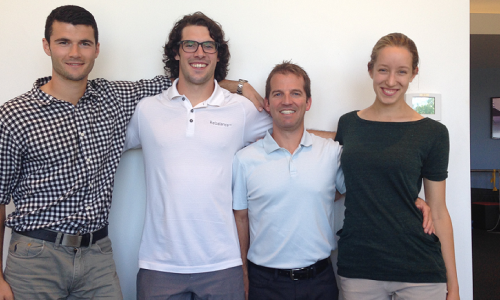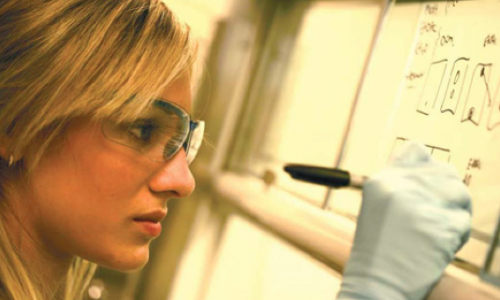
I worked for two companies during my work terms. The first was an acute clinic in Burnaby, while the second was located in Maple Ridge, which offered Occupational Rehabilitation 1 & 2 (OR 1 & 2) programs in addition to acute rehabilitation. I will be comparing these two companies based on several topics: team cohesion/culture, student training, learning environment, managerial attitude and management of student issues. Part one detailed my co-op experience in Burnaby. Now in part two, I’ll share my positive work experience in the Maple Ridge clinic.
Team Cohesion & Culture
The first half of my co-op work term was spent working full-time in the OR 1 and OR 2 programs, and the second half my time was split between the OR programs and the acute clinic. In the OR programs, there were multiple physiotherapists and kinesiologists working together, along with an occupational therapist and psychologist. I found the team worked together well at this company, and communication was much better than my previous experience. The physiotherapists were very good with communicating updates regarding clients to the kinesiologists, and the occupational therapists worked very closely with the kinesiologists to develop return-to-work plans. Afternoon meetings were also held with all staff members to update each other on what happened that day or what was to happen with clients. This allowed all staff members to be on the same page regarding each client to minimize discrepancies. At the acute clinic, the physiotherapists were very good at communicating with the kinesiologists and coordinating their patients so that the kinesiologists would have enough time to work with the patients at different times. The physiotherapists were also very good with updating the kinesiologists about clients, and took the time to oversee their exercise program so that the patient did not plateau. This system allowed patients to get the best care and shortest waiting time for treatment.
Student Training
I was asked to come in for two weeks before my official start date so that I could shadow the senior co-op student who was finishing his practicum. The clinic ensured that there would be an overlapping semester between co-op students so that the newer students could receive proper orientation and knowledge-transfer from the departing students. These two weeks were used to introduce the new student to the clients and to get them used to the weekly program schedule. There was no formal demonstration of exercises as you were expected to have a good background in them already, but any unfamiliar exercises could be shown when needed. This training was valuable as these programs are run very differently from typical acute physiotherapy clinics. During this time I also observed how the students interacted with the clients and how they went about talking to clients regarding their WorkSafe BC claims. These shadowing oppotunities were extremely valuable and essential to my success in this practicum.
Learning Environment
Over the 8-month practicum I was continuously learning in my role. During the first half of the placement, there was a very large learning curve to overcome around how OR programs work, scheduling, functional testing, and developing and implementing rehab programs for clients. Program design was a very large focus as they had to be very specific to the injury, healing stage and job of that client. In the second half of the practicum, we were given the opportunity to lead and teach in an effective manner by organizing and running the morning and afternoon circuit sessions and education classes, in addition to our current duties. The team worked together very closely to ensure the program ran smoothly so I was never in a situation where I did not have a team member close by if I needed help, nor did I ever feel uncomfortable approaching another team member for assistance. Staff and management were also very open to suggestions and were always looking for new ways to improve the program. By the end of my practicum I felt like there was still so much more to learn on top of the great experience I had already gained there.
Managerial Attitude
The managerial team was very welcoming and approachable at both the acute clinic and OR clinic. At least once a week the owner of the clinic would take the students aside to do some form of lesson on something he had put together for us or a topic we requested. Most of these lessons focused on specific injuries, especially if we had multiple clients with that same injury in the clinic. He also gave valuable lessons on client relations, pain and other related topics. The managers were also very accommodating to student requests and were in constant communication with us. We had weekly meetings after the programs were over to discuss issues that had come up that week, receive updates on clients from the occupational therapists, and anything else that needed to be discussed to ensure everyone was on the same page with all the clients.
Management of Student Issues
The staff here were very friendly and approachable from the start of my practicum. The work environment here is more face-paced compared to other placements, and so the staff were very understanding of the huge learning curve we would need to overcome in the first few weeks. By working with the senior student the transition was made much easier, without pressure to perform tasks that we were not comfortable with. With regards to client issues, we had the immediate support of the staff and were protected from clients who became threatening or violent. During the last couple months of my practicum I started to become very ill, with symptoms worsening very quickly. My manager showed concern and adjusted my shifts so that I was able to go to my doctor. As my illness worsened, my duties were adjusted and the other student took on a bigger role to support me. By the time my practicum was finishing up, I had no diagnosis and was in extremely bad shape. The staff went above and beyond my expectations in helping me through this, and I am extremely thankful that I had the support of the company during this difficult time. I was treated with kindness and support, and never felt like I could not talk to them about what was going on. I will never forget how well they handled the situation and have immense praise and admiration for them.
Overall Impressions
This was a tough practicum to complete, but the learning opportunities were very rewarding. I definitely do not recommend this for a first time co-op student, as one needs to have a very solid background in basic rehab exercises for common injuries. You should be mentally tough and good at reading people, as many clients were difficult to deal with and would try to manipulate you. Previous experience dealing with difficult people would be an asset in this role, as well as the ability to think quickly and show confidence in your choices. You should expect to be challenged by the clients, but remember to use your resources for support. Despite the challenges I faced during this placement, I have grown and learned many valuable skills that I will use for the rest of my life. I cannot praise this company enough for how much I learned and how rewarding my time with them was, and how much this placement has changed my co-op experience.
Beyond the Blog
-
Find out more about the BPK Co-op program.













